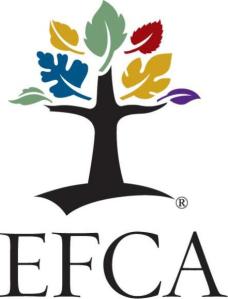 Earlier this year, our church affiliated with the EFCA. In a previous post, I wrote about why we (a nondenominational church) decided to join an association of churches. But—once we had decided to become part of a larger group of churches—why did we choose the Evangelical Free Church of America? Here are some of the factors that led us to this choice:
Earlier this year, our church affiliated with the EFCA. In a previous post, I wrote about why we (a nondenominational church) decided to join an association of churches. But—once we had decided to become part of a larger group of churches—why did we choose the Evangelical Free Church of America? Here are some of the factors that led us to this choice:
Theologically robust
I’ve been an interested observer of the EFCA for years. One of the things I’ve long appreciated was the theological depth I saw from their pastors and leaders. I’d expect this from people in the movement such as seminary professors (and the EFCA has its share of renowned scholars), but it was encouraging to see this level of knowledge and theological maturity in discussions at the pastoral level.
Pastorally motivated
It’s easy to get so caught up in the minutiae of sterile, ivory tower kinds of theological discussions we lose our moorings in an actual church context with real, everyday ministry concerns. I haven’t seen this kind of imbalance with the EFCA. As a movement, they’re passionate about helping their churches be truly healthy, transforming churches who can multiply transforming, multiplying churches. Their intellectual richness serves and supports the EFCA mission.
Doctrinally balanced
The pastors and leaders of the EFCA are uncompromising in their stand on the gospel of Jesus Christ and the essential truths of evangelical Christianity. But from the beginning they’ve intentionally resisted making official pronouncements concerning secondary issues. The movement includes both Calvinists and Arminians. They have no official view on spiritual gifts, infant baptism or the timing of the rapture. At the EFCA One conference in New Orleans, I saw this diversity manifested in other ways as well. There were many different races represented, different styles of clothing, a wide range of ages. I saw young leaders respected and listened to, and also much older leaders equally respected, serving actively and vibrantly (sometimes even assuming new and challenging roles). One could say their unity in the gospel is what makes possible their genuine freedom in nonessential issues.
Missionally driven
This is a movement that takes seriously their mission statement: We exist to glorify God by multiplying transformational churches among all people. Over and over again at the conference I witnessed the consistent, ongoing commitment to this mission. This statement isn’t just a formality for them, something to have somewhere on a website. These churches, pastors and leaders really are all about multiplying transformational churches among all people. They are focused on their own churches being transformational and multiplying, and in doing everything they can to help others grow in doing this as well.
I should also mention that the Free church people we’ve met have been some of the nicest, most gracious people you can imagine. They’ve made us feel right at home in the EFCA. In some ways we don’t have to change anything about who we are as a church. But I also feel encouraged and challenged to keep growing, seeking God’s continued transforming work, in my life as an elder and pastor, in the life of our church and beyond. We are excited to share in the life and mission of the EFCA. We too long to glorify God by multiplying transformational churches among all people.
(Another EFCA ministry I’m thrilled about is EFCA Gateway—but it deserves it’s own post! Stay tuned.)

 Earlier this year, our church joined the Evangelical Free Church of America. (The EFCA is an association of over 1,500 autonomous churches.) Earlier this month, I spent a few days in New Orleans for EFCA One, the national conference of the EFCA movement. This was an incredible time of being renewed spiritually and being inspired and motivated for continued ministry. Experiencing this conference also confirmed to me that the EFCA family is the right fit for us. I’m going to write another post about why we feel strongly the EFCA is the right home for our church, but first I want to look at the question: “Why affiliate at all?”
Earlier this year, our church joined the Evangelical Free Church of America. (The EFCA is an association of over 1,500 autonomous churches.) Earlier this month, I spent a few days in New Orleans for EFCA One, the national conference of the EFCA movement. This was an incredible time of being renewed spiritually and being inspired and motivated for continued ministry. Experiencing this conference also confirmed to me that the EFCA family is the right fit for us. I’m going to write another post about why we feel strongly the EFCA is the right home for our church, but first I want to look at the question: “Why affiliate at all?”